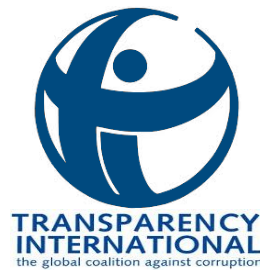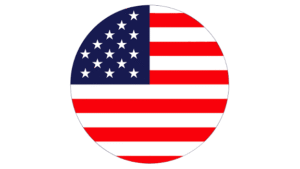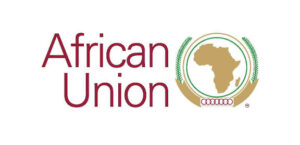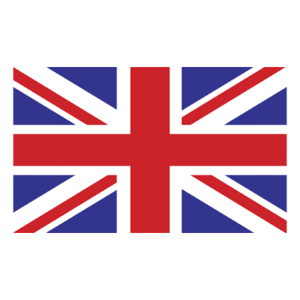For decades, Africa has been branded the world’s most corrupt continent — a reputation reinforced by international media, donor agencies, and political rhetoric. But a closer look shows that corruption is not an African invention, and the world’s largest financial scandals often originate in the same countries that claim moral authority on governance.
The Global Corruption Paradox
Transparency International’s 2024 Corruption Perceptions Index (CPI) gave sub-Saharan Africa an average score of 33/100, signalling high perceived corruption. Nigeria scored 26, ranking 140th out of 180 nations — data frequently used to justify the “Africa is corrupt” narrative.

But perception is not fact. The United States, often portrayed as a global model of transparency, has slipped steadily down the CPI rankings. The U.S. Government Accountability Office (GAO) reported that between 2018 and 2022, fraud and waste cost U.S. taxpayers between $233 billion and $521 billion — more than the GDP of most African countries combined.
The Pentagon Example — Corruption in Uniform

No case better exposes Western hypocrisy than the U.S. Department of Defense (DoD), which has failed five consecutive audits. In 2023, officials admitted they could not properly account for 61 percent of their $3.5 trillion in assets. Congressional oversight committees discovered contractors overcharging by 40 to 4,000 percent on spare parts and weapons.
Senator Chuck Grassley described it as “a stunning example of fiscal recklessness disguised as patriotism.” If a similar scandal happened in Africa, it would dominate global headlines as evidence of systemic corruption. When it happens in Washington, it is politely called budget mismanagement.
Halliburton, Cheney, and Conflict of Interest
The story of Halliburton and former U.S. Vice President Dick Cheney remains one of the most glaring examples of institutionalised conflict of interest. Cheney served as Halliburton’s CEO from 1995 to 2000 — immediately before becoming Vice President under George W. Bush.

During the Iraq and Afghanistan wars, Halliburton and its subsidiary KBR were awarded billions of dollars in no-bid military contracts from the Pentagon — despite clear ties to Cheney and multiple allegations of overbilling. The company later paid $579 million in fines for bribery and corruption related to its operations in Nigeria.
This dual role — a U.S. Vice President profiting indirectly from wars his administration launched — represents a deeper form of corruption: state-sanctioned profiteering. Yet it’s seldom cited as evidence that America is corrupt. Instead, Africa continues to be the global scapegoat.
Why the Narrative Targets Africa
Three main forces sustain the “Africa is corrupt” label:
Historical bias – Colonial administrations left extractive institutions that weakened accountability.
Media imbalance – Western outlets amplify African scandals but downplay Western graft.
Power dynamics – Global financial and political dominance allows Western nations to control the corruption narrative and deflect scrutiny.
The result is a distorted perception that punishes Africa with higher borrowing costs, intrusive donor conditions, and unfair moral judgement.

A Selective Moral Lens
The Pentagon’s $778 billion defence budget in 2021 — larger than the GDP of nearly all African countries — channelled more than half its funds to private contractors. The Quincy Institute found that five major U.S. defence companies received $2.4 trillion between 2020 and 2024, much of it through opaque arrangements.
If an African defence ministry misplaced even 1 percent of that sum, it would trigger international condemnation. In Washington, it is business as usual.
 As one analyst aptly said, “Corruption wears many uniforms — and in the global theatre of defence spending, few actors are innocent.”
As one analyst aptly said, “Corruption wears many uniforms — and in the global theatre of defence spending, few actors are innocent.”
Africa’s Progress Is Real — but Ignored
Despite the constant stigma, Africa is not stagnant. Seychelles (72), Botswana, Cape Verde, and Rwanda all score higher on the CPI than many Eastern European or Asian nations. Countries like Kenya, Ghana, and Nigeria are digitising procurement, enforcing audit reforms, and strengthening anti-corruption agencies.
Transparency International itself acknowledges that African nations are improving faster than several “developed” economies whose scores have stagnated or declined. Yet Western media rarely highlight these gains — only the failures.

Who Really Pays the Price
This bias has tangible economic consequences. Africa’s “corruption” label translates into higher interest rates on sovereign loans, reduced foreign investment, and conditional aid. Meanwhile, wealthy nations with trillion-dollar deficits and unaccounted budgets enjoy favourable credit ratings. The global system penalises image, not integrity.
The Global Nature of Corruption
According to the United Nations Office on Drugs and Crime (UNODC), global corruption drains over $3 trillion annually, or 5 percent of global GDP. Much of that money circulates through offshore accounts in London, Zurich, and New York — not Lagos or Nairobi.
Western banks, law firms, and shell-company registries enable the very corruption they denounce. When African elites stash looted funds abroad, they rely on Western financial systems to hide them. Thus, the same nations preaching transparency profit from opacity.

Reclaiming the Narrative
Corruption is not an African disease — it is a global industry. Fixing it requires honesty, not hypocrisy. Western governments must hold their own corporations and officials accountable, while African nations must continue building institutions that outlast personalities.
Mutual accountability, not moral superiority, is the only path to progress.
A New Lens on Governance
Rewriting the narrative also means measuring corruption by impact, not just perception. A $10 million scandal in an African ministry hurts, but a $500 billion unaccounted defence budget in a Western democracy undermines the global economy. The scale matters.
As Barack Obama once said, “The best antidote to corruption is transparency and accountability.” That principle must apply everywhere — not only south of the Sahara.

While Africa is often portrayed as a hub of corruption, the reality is that the United States—particularly within its military-industrial complex—is no less tainted. Investigations into Pentagon contracts and defense spending routinely expose staggering levels of waste, overbilling, and profiteering. Inflated costs for spare parts, weapons systems, and overseas operations have drained hundreds of billions of taxpayer dollars with minimal accountability. Reports from the U.S. Government Accountability Office and independent watchdogs reveal systemic abuse masked by bureaucracy and “national security” secrecy. The paradox is striking: nations that lecture others on transparency are themselves drowning in unchecked military expenditure. True reform must begin with honesty—because corruption wears many uniforms, and in the global theatre of defense spending, few actors are innocent.

Conclusion: It’s Time for Honest Accounting
Africa’s corruption problem is real but overstated; the West’s is greater but well-hidden. The Halliburton scandal, the Pentagon’s black holes, and systemic corporate profiteering reveal a simple truth: power protects its own corruption.
The world must abandon the lazy narrative that Africa is uniquely dishonest. Corruption does not speak one language, carry one passport, or belong to one continent. It thrives wherever power meets impunity — whether in Washington boardrooms or African ministries.
Until the global system demands the same transparency from the powerful as it does from the poor, Africa will continue to be blamed for sins it did not invent — and the world will remain blind to the corruption that truly costs humanity the most.
Dr. G. Fraser. MFR.
The National Patriots.




